Luca Silvestrini paints his contentious look at multiculturalism in Britain in the brash primary colours of stereotyping, allowing little space on the canvas for the light and shade of personal insight. He woefully underuses the experiences of his international company (experience which fed fascinatingly into the post-show discussion on Wednesday night) and for the most part pitches the work on one tediously derisive level.
Border Tales starts promisingly enough with the audience at The Place seated in the round, poised for confrontation or communal enjoyment, for judgement or acceptance. The set, an empty space save for two lines crossing the floor (one resembling a crack in the earth, the other a snaking river of blue), is darkly, tensely lit by Jackie Shemesh. It's also bookended by a digital soundboard nestled into the audience at one end and a jungle of instruments arranged directly opposite - a musical playground for the preposterously talented Anthar Kharana and Andy Pink’s galvinising, global score.
An atmosphere of taut expectation is instantly jolted into a more jovial gear as dancers of various racial backgrounds begin to sprawl about the auditorium uttering a hybrid poem of popular lyrics, moving from Sting’s "An Englishman in New York" to The Vapors’ "Turning Japanese". Unfortunately these tongue-in-cheek poetics are all too brief: the piece soon takes us to a darker place where humour is stifled.
Layered over the choreography is a bizarre text which comments more upon the prejudices a foreign immigrant might have about how they think will be perceived in their new home, than about people’s actual perceptions of them or how they feel about these perceptions. The text prefaces persistent racist assumptions with the words, “I think you think...”, a phrase which lies at the flawed heart of the work.
 There are fledgling moments of genuine inspiration that hint at what Border Tales might have been, and nearly all of them are when the dance is left to speak for itself or when the commentary accidentally moves beyond the cynical chatter of stereotyping. Two dancers, British-born Stuart Waters and Egyptian native Salah El Brogy (pictured right), attempt to greet each other physically but are stumped by differing customs of reception. They move in to shake hands then snatch them away, attempt an embrace but fail to make contact. From this derives a stuttering duet of awkward, bashful interaction - an ingenious expansion of a recognisable scenario, but not necessarily one that is confined to divergent national greetings.
There are fledgling moments of genuine inspiration that hint at what Border Tales might have been, and nearly all of them are when the dance is left to speak for itself or when the commentary accidentally moves beyond the cynical chatter of stereotyping. Two dancers, British-born Stuart Waters and Egyptian native Salah El Brogy (pictured right), attempt to greet each other physically but are stumped by differing customs of reception. They move in to shake hands then snatch them away, attempt an embrace but fail to make contact. From this derives a stuttering duet of awkward, bashful interaction - an ingenious expansion of a recognisable scenario, but not necessarily one that is confined to divergent national greetings.
Another sequence allows Taiwanese Yuyu Rau to reel around the men like a spirit unleashed, using their bodies merely as springboards to showcase her physical prowess, and though she expounds upon the stereotypical expectations of Asian women as she tears about the stage, much of her text could be spoken from the perspective of women in general.
On occasion, the text moves beyond staged confrontations between performers to staged accusations of the audience, treading a crumbling line of edgy provocation. Amongst the multinational audience, groups and individuals are verbally poked and sneered at for their national dishes, traditions and tastes. Unnecessary quips are also made outside the issue of multiculturalism that serve little purpose other than to undermine the audience’s experience. Following one of the final ensemble dances, a Dionysiac orgy of loud movement and fiendish energy, Stuart Waters (pictured below left with Stephen Moynihan) quips, "Well that was...earthy", immediately mopping up any residual sense of enjoyment.
 Nobody would argue that cultural prejudice is not still a topical or important issue, or that racial stereotyping no longer exists, but Border Tales does little more than catalogue these stereotypes and package, label and present the dancers by their nationalities.
Nobody would argue that cultural prejudice is not still a topical or important issue, or that racial stereotyping no longer exists, but Border Tales does little more than catalogue these stereotypes and package, label and present the dancers by their nationalities.
The greatest impression is made not by the repetitive diatribe against racial stereotyping, but by the harmonious and exhilarating dancing of Protein’s multicultural company. This is symbolised in the last ensemble number, when the lighting on the stage throws up huge shadow dancers on to the walls behind the audience, obscuring race, colour and creed in the joy of communal movement.
- Border Tales is at The Place until Saturday 15 March.

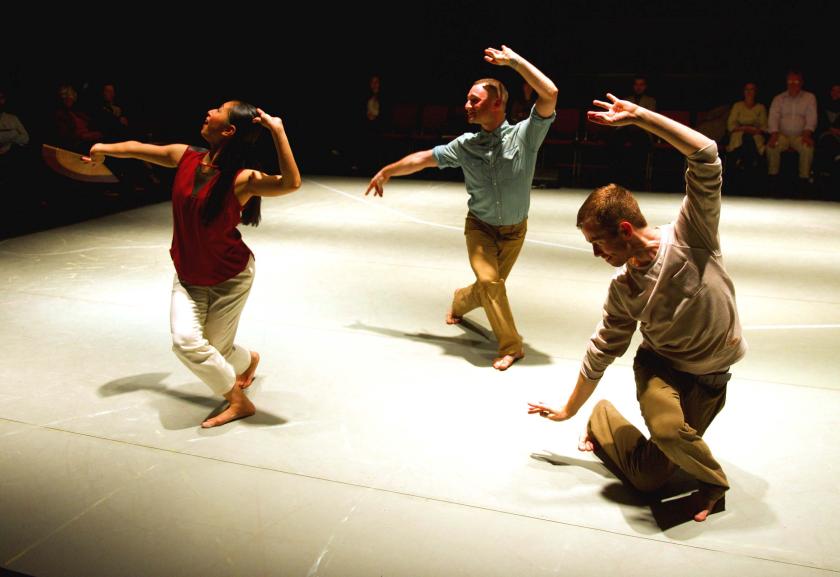


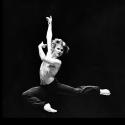

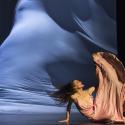


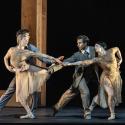
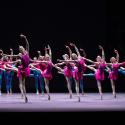



Add comment